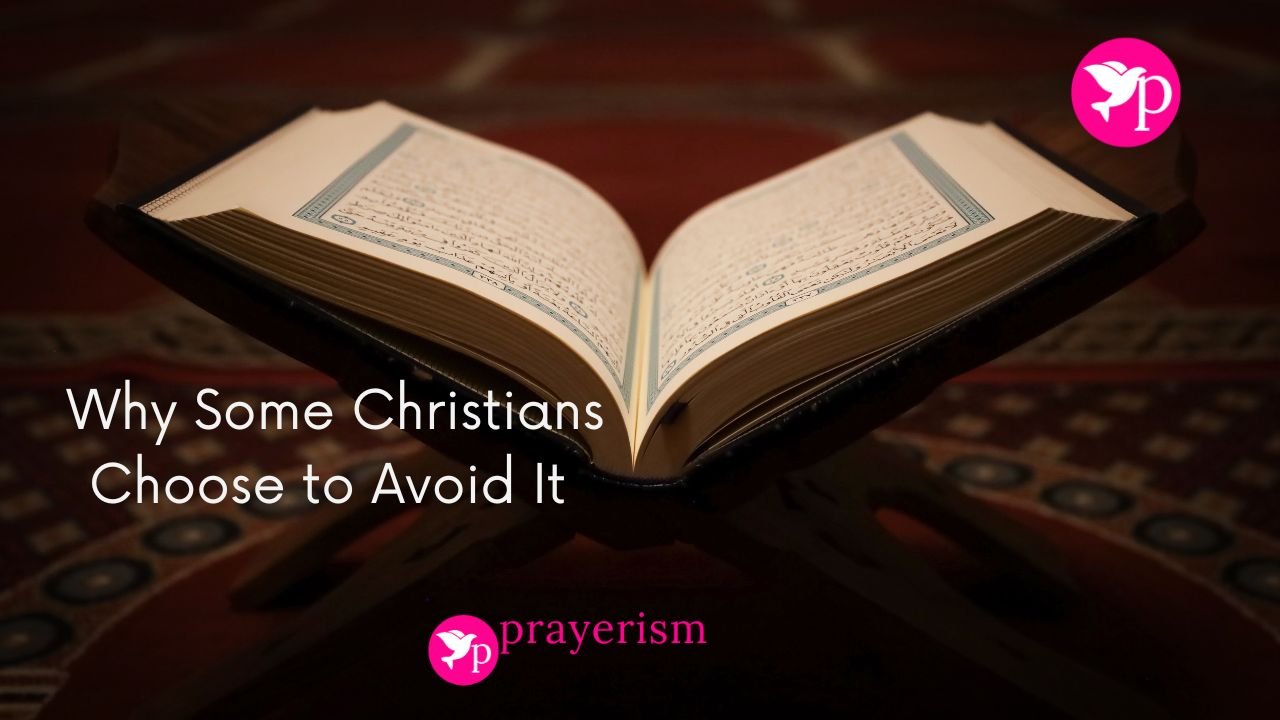The Bible is often considered the ultimate religious text for Christians, offering moral, spiritual, and historical guidance. However, there are other ancient texts that claim to offer insight into the spiritual realm, one of which is the Book of Enoch. While it has attracted interest from scholars, theologians, and even modern readers, the Book of Enoch is not part of the standard biblical canon used by most Christian denominations. In fact, some Christians actively avoid engaging with it.
This blog post will explore the Book of Enoch, its historical background, its relationship to Christian theology, and the reasons why some believers choose not to include it in their faith practice.
What Is the Book of Enoch?
The Book of Enoch, also known as 1 Enoch, is an ancient Jewish text attributed to the biblical figure Enoch, the great-grandfather of Noah. Enoch is a relatively mysterious figure in the Bible, but he is mentioned in Genesis 5:24, which states, “Enoch walked faithfully with God; then he was no more, because God took him away.” This brief reference has intrigued both Jewish and Christian scholars for centuries, and it’s from this intrigue that the Book of Enoch emerged.
There are multiple sections within the Book of Enoch, including:
- The Book of the Watchers: This section describes the fall of the “Watchers” or angels, who descended from heaven to take human wives and produced offspring known as the Nephilim. It also covers Enoch’s visions and journeys through heaven.
- The Book of Parables: This section deals with the coming judgment, the Messiah, and the fate of the righteous and the wicked.
- The Astronomical Book: A detailed account of the movements of the heavenly bodies and the calendar.
- The Dream Visions: This section contains symbolic visions of the history of Israel.
- The Epistle of Enoch: A collection of admonitions and warnings against sin, with a focus on moral teachings.
The text was written in the centuries leading up to the birth of Christ and is a composite work, with contributions from multiple authors. Its themes of angels, fallen spirits, divine judgment, and the coming of the Messiah made it popular among some of the early Jewish sects, particularly the Essenes, who preserved the book among the Dead Sea Scrolls.
Historical Reception of the Book of Enoch
The Book of Enoch was widely regarded as an authoritative text by some early Jewish groups, and it also had a considerable influence on early Christian thought. Several early Church Fathers, such as Tertullian and Irenaeus, referred to it in their writings.

However, despite its initial popularity, the Book of Enoch gradually fell out of favor in mainstream Jewish and Christian circles. It was not included in the Tanakh (the Hebrew Bible), and later, it was excluded from the Christian Old Testament canon. Today, it is mainly regarded as apocryphal by most denominations, although it is still considered canonical in the Ethiopian Orthodox Church.
Why Is the Book of Enoch Not in the Bible?
The exclusion of the Book of Enoch from most versions of the Bible can be traced back to a few key reasons:
- Canonization Process: When the biblical canon was being formalized, particularly during the Councils of Carthage and Hippo in the 4th century, the Book of Enoch did not make the cut. One of the criteria for inclusion in the canon was apostolic authorship or close association with a recognized prophet or apostle. While Enoch is a biblical figure, there was no strong historical connection between the actual text and the person of Enoch.
- Controversial Content: The Book of Enoch contains some highly speculative and fantastical material, particularly concerning angels, demons, and the Nephilim. Its vivid descriptions of the fall of the Watchers and their illicit relationships with human women were deemed too speculative or theologically problematic by many early church authorities.
- Lack of Universal Acceptance: While the Book of Enoch was influential in some Jewish and early Christian circles, it did not enjoy universal acceptance. Many Jewish and Christian leaders in the Roman Empire and beyond were either unaware of the text or did not consider it authoritative. This lack of widespread recognition made it difficult for the text to be accepted into the canon.
- Overlap with Other Texts: Some of the themes and ideas found in the Book of Enoch are echoed in other parts of the Bible, particularly in the Book of Daniel, Revelation, and Genesis 6. However, the canonical texts present these ideas in a much more restrained manner. The Book of Enoch takes these themes and expands them into detailed narratives, which some church fathers found excessive or unnecessary.
Why Some Christians Choose to Avoid the Book of Enoch
Although the Book of Enoch is available to modern readers and is even considered part of the canon by the Ethiopian Orthodox Church, many Christians choose to avoid reading or studying the text. Below are the main reasons why:
1. It Is Not Part of the Canon
For many Christians, the Bible represents the complete and authoritative word of God. The Book of Enoch is not part of the canon in most Christian traditions (with the exception of the Ethiopian Orthodox Church), and therefore, it is often regarded as apocryphal or non-canonical.
Since it is not recognized as divinely inspired Scripture by most Christian denominations, many believers feel that engaging with it could lead to confusion or distraction from the core teachings of the Bible. Additionally, since it was excluded from the canon by the early Church, some Christians trust that this decision was divinely guided and prefer to focus solely on the accepted biblical texts.
2. Its Theological Speculations
The Book of Enoch delves deeply into speculative theology, particularly concerning angels, demons, and the Nephilim. For example, the Book of the Watchers describes how certain angels, called Watchers, descended to earth, took human wives, and fathered a race of giants known as the Nephilim. This story is an elaboration of the brief mention of the Nephilim in Genesis 6:1-4, but it presents a much more detailed and dramatic account.
While some Christians find these stories fascinating, others view them as dangerous speculations that go beyond what is revealed in Scripture. The Bible warns against adding to or taking away from the word of God (cf. Deuteronomy 4:2, Revelation 22:18-19), and some Christians fear that engaging with the Book of Enoch could lead to an unhealthy fascination with speculative ideas that are not biblically grounded.
3. Concerns About Its Origin
The authorship of the Book of Enoch is another point of contention. Although the text is attributed to Enoch, it is widely accepted by scholars that it was written much later, likely between the 3rd century BCE and the 1st century CE. This means that the Book of Enoch is not a firsthand account from the biblical figure of Enoch, but rather a pseudepigraphal work—a text written in someone else’s name.
For some Christians, the fact that the Book of Enoch is pseudepigraphal raises serious concerns about its authenticity and trustworthiness. If the book was not actually written by Enoch, then its claims to divine revelation might be called into question. As a result, many believers are reluctant to place any spiritual or theological weight on the text.
4. Potential to Distract from Core Christian Beliefs
The Book of Enoch contains a wealth of material on angels, demons, and other supernatural beings. While these topics can be intriguing, they are not always central to the core message of Christianity, which focuses on Jesus Christ, salvation, and the kingdom of God.
Some Christians worry that spending too much time studying the Book of Enoch could lead to an unhealthy preoccupation with angels and demons, at the expense of more important theological issues like grace, faith, and love. The Bible itself warns against getting caught up in “myths and endless genealogies” that “promote controversial speculations rather than advancing God’s work” (1 Timothy 1:4). For this reason, many Christians choose to avoid the Book of Enoch and focus instead on the canonical Scriptures.
5. Concerns About Heretical Interpretations
Certain groups and individuals throughout history have used the Book of Enoch to promote heretical or fringe interpretations of Christian doctrine. For example, some Gnostic sects in the early Church found support for their dualistic beliefs in the Book of Enoch, particularly its descriptions of fallen angels and the corruption of the physical world.
In more recent times, some conspiracy theorists and fringe Christian groups have latched onto the Book of Enoch to support ideas about ancient aliens, secret knowledge, or hidden biblical truths. For many mainstream Christians, this association with heretical or unorthodox ideas is another reason to avoid the text. They fear that engaging with the Book of Enoch could open the door to false teachings or dangerous spiritual ideas.
6. Lack of Clear Christology
One of the most noticeable differences between the Book of Enoch and the canonical New Testament is the lack of a clear focus on Jesus Christ. While the Book of Parables does contain references to a Messiah figure, it does not explicitly identify this figure as Jesus of Nazareth.
For Christians, the centrality of Christ is non-negotiable. Any text that does not clearly point to Jesus as the Son of God and Savior of the world is often considered incomplete at best, and misleading at worst. Since the Book of Enoch does not offer a fully developed Christology, many Christians feel that it falls short of the spiritual depth and authority of the canonical New Testament.
Why Some Christians Choose to Read the Book of Enoch
While many Christians avoid the Book of Enoch, there are others who find value in studying it. Here are a few reasons why some believers choose to engage with the text:
1. Historical and Cultural Insight
The Book of Enoch provides valuable historical and cultural insight into the beliefs and practices of early Jewish communities, particularly those associated with the Essenes and the Dead Sea Scrolls. By studying the Book of Enoch, modern readers can gain a deeper understanding of the religious and philosophical environment in which early Christianity developed.
2. Influence on Early Christianity
The Book of Enoch had a significant influence on early Christian thought, particularly in its depictions of angels, demons, and the final judgment. Some scholars argue that the Book of Enoch shaped certain New Testament passages, especially in Jude and 2 Peter. For example, the Epistle of Jude quotes directly from the Book of Enoch (Jude 1:14-15), lending it some level of credibility in the eyes of certain Christians.
3. Spiritual Reflection
For some believers, the Book of Enoch provides a rich source of spiritual reflection and meditation. Its vivid descriptions of heaven, angels, and divine judgment can inspire awe and deepen one’s sense of the majesty and mystery of God’s creation.
Conclusion: To Read or Not to Read?
The Book of Enoch remains a fascinating and controversial text within Christian circles. While it offers intriguing insights into ancient Jewish and Christian thought, it also raises theological and spiritual questions that have led many Christians to avoid it. Ultimately, whether or not to engage with the Book of Enoch is a personal decision that each believer must make for themselves.
For those who choose to read it, it is important to approach the text with discernment and a strong grounding in the Bible. The Bible itself should always be the primary source of spiritual authority and guidance for Christians. The Book of Enoch can offer historical context and spiritual reflection, but it should not replace or supersede the clear teachings of the Scriptures.
As with any non-canonical text, believers are encouraged to pray for wisdom and seek guidance from trusted spiritual leaders when deciding whether or not to engage with the Book of Enoch.

